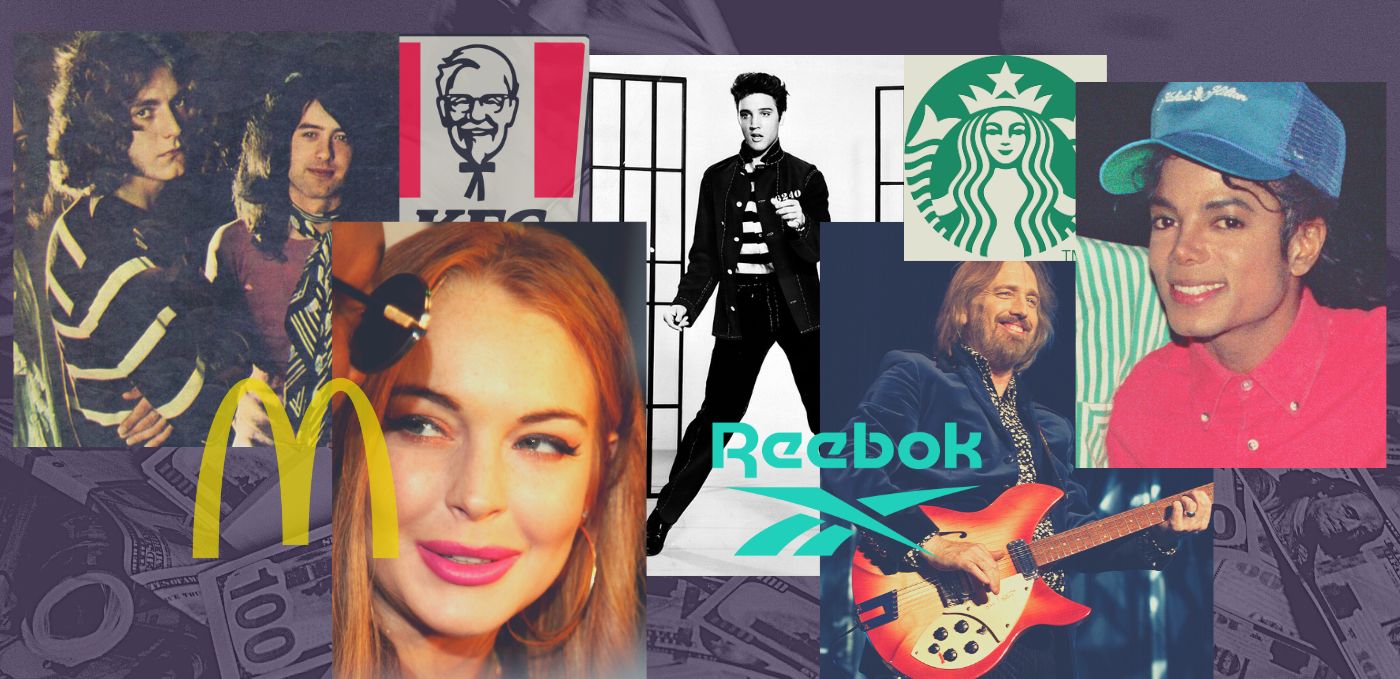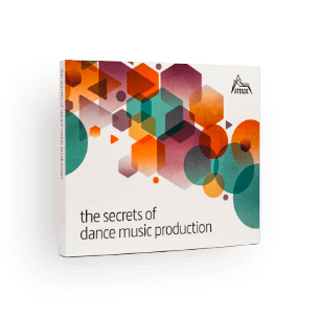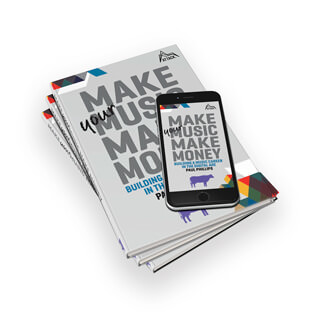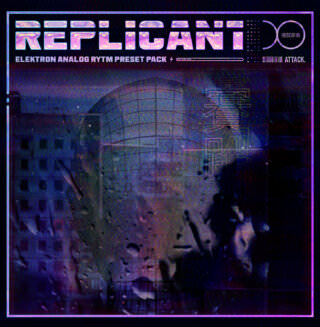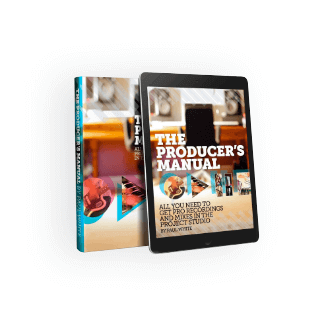Selling out, patronage, sponsorship and endorsement – all equal the same thing – financial reward. But are artists getting paid to feature on a corporate playlist, for example, that belongs to and endorses McDonalds? Is it different to having your music played instore? Would you expect to get paid if Nike wanted your music for an advert?
The relationship between musicians and corporations has always been a complex dance. The concept of “selling out” has always echoed throughout music history.
From the early days of rock ‘n’ roll to the present digital streaming era, artists have grappled with the tension between artistic integrity and financial opportunity.
This article only coincidentally arrives at the same time as Spotify Wrapped 2023. For some, such as Defected Records boss Wez Saunders, it’s a celebration. For others, it’s a reminder Spotify does not pay enough for people to make a living from.
If you’re looking for an article supporting either side, this won’t be for you and a balanced discussion on that would make for a whole more extensive feature. Like anything in life, there are two sides and we’ve covered both. Those in favour and those against.
I like seeing everyone’s @Spotify wrapped. It’s nice to celebrate. I see a lot of negativity either about it or about the service, but I for one love that you are proud of your achievements as artists – you should be. Congratulations to you all 👊🏻
— Wez Saunders (@WezSaunders) November 29, 2023
Max Cooper takes a more nuanced approach:
Instead, we’re looking at how certain aspects of patronage would appear to have been turned upside down. In today’s fractured music economy, many musicians do not earn enough from music streaming or music sales. Turning towards a financial opportunity might be a lifeline a musician needs to support their career. Is it patronage or is it selling out? Does independence matter if the art gets made? Is it a means to an end?
The Briefest Brief History of Selling Out
In previous centuries, and to a lesser extent today, religion had the money to pay artists. Maybe Michelangelo would have wished to paint something different, but certainly, without money provided by the church, the Sistine Chapel would not have a beautiful ceiling. It was an excellent advert for religion if that’s your bag.
Jump forward five centuries or so, and despite rock ‘n’ roll emerging as a rebellious force, challenging societal norms, it also caught the attention of advertisers seeking to capitalize on the youth culture phenomenon.
Elvis Presley to give one example, sang a radio ad for his favourite doughnut bakery ‘Southern Maid Donuts’. He recorded it, including the words, “You can get ’em piping hot after four PM, you can get ’em piping hot. Southern Maid Donuts hit the spot, you can get ’em piping hot after four PM.” The precedent was clear: artists can help sales.
Does everyone have a price?
It was not one-way traffic, however. As the music industry exploded, many artists either did not need corporate commercialism or refused it (or both). Record sales and live revenue were more than enough to survive comfortably.
Led Zeppelin and Tom Petty are two examples of iconic musicians who, to varying degrees, resisted or distanced themselves from specific corporate deals.
Led Zeppelin, was known for their reluctance to license their music for commercial purposes, particularly in the early years of their career. The band members were cautious about commercialization and felt that their music should stand independently without excessive marketing. While they eventually allowed some use of their music in advertisements, it was a carefully curated process, and they maintained a level of selectivity. Their manager, Peter Grant, was also infamous for his fights against bootlegging and ensuring the band made as much as possible. And there was more than enough before having to entertain external funding sources.
Tom Petty, on the other hand, wouldn’t license his songs for any advertising purpose. He refused to accept corporate tour sponsors for his tours and pursued copyright infringement against people who used portions of his songs in their material.
If you have to make money to provide, it’s understandable. Life is not a game of perfect.
But Most People Have A Price
But as we all know….money talks, and most people have a price. The Sex Pistols, for some but certainly not all, are considered an emblem of anti-establishment anti-commercialisation. But by the 2000s, frontman John Lydon was in a butter commercial. I’m not criticising the decision. If you have to make money to provide, it’s understandable. Life is not a game of perfect.
It was however clear things were developing fast. In the 70s, you could easily hold your own, especially if you were shifting enough copies. It was different then, a very different landscape and arguably easier. In the 80s, Jackson helped make Pepsi a significant player in the sector and made him very rich. People noticed and by the early 2000s, hip-hop was rife with placements from Reebok to Vodka to various car companies. You almost had not made it without commercial recognition or endorsement.
Things changed so quickly in such a short amount of time. And it appears it’s morphed again.
The Industrialisation of Selling Out In The Streaming Era
With the briefest of brief histories complete, what about today?
In today’s landscape, an artist can be added to a playlist, such as KFC’s Bucket Bangers, Nike’s Run Club or McDonald’s Perfect Harmony. But the question is, “Are any artists being asked in advance if they are ok with that?”
Our hunch is no.
What is the purpose of the playlists? Undoubtedly, it’s to improve any of these enormous corporations’ image, engagement and brand loyalty. And as history tells us, artists can help with that. This leads to the question, “Should artists be paid for this blind endorsement?”
We recently asked our audience if a playlist curator for a brand had requested permission to include an artist on a playlist. Unfortunately, there was no response. Like all stats, a blank stat can be interpreted differently. After all, this is the time of “alternative facts”, but our suspicion is either there is a payment, and it’s preferred to be quiet, or there’s no money or even permission.
If artists are getting paid, we’re here to support artists and we’re ok with that. History tells us, there’s always been a need for it. It’s not ideal but it can be a means to an end. But if they are not getting paid, this seems troubling on the face of it.
Should artists be asked about the brands they are endorsing?
Finger Licking Good Marketing
Spotify knows how to market itself. Their annual Wrapped exercise is straight out of the UGC marketing playbook and works every time. It does look great.
KFC also has a knack for marketing, and their playlist approach is slightly different from others in the sense that Bucket Bangers is actually a collection of tracks that feature shout-outs about their brand. To that end, the playlist is almost like a ‘playlist of gratitude’.
Shouting out a brand, or a person in a song as Lindsey Lohan vs Pitbull can tell you, can land artists in hot water. But in this case, KFC has shown some support instead. It’s easy to think all massive corporations are evil monsters but this feels pretty genuine.
Only up to a point, however. Kanye West, Ye, whatever he’s called now, is the top track in KFC Bucket Bangers. Yes, there’s a chance he’s got a relationship with KFC, but we’d assume he doesn’t. It’s excellent marketing copy, though; “If you enjoy ‘Touch the Sky’ there’s a good chance you’ll like our new ‘Zinger Burger'”.
The rapper/producer indeed has commercial deals falling apart lately, but we can’t imagine he’s leaning on this playlist to support himself. So, it probably flies under the radar.
But what about independent artists, whose lifeline is selling records, which is a fraction of what it used to be in the streaming era? Where do they stand?
Nike Run Club
Nike Run Club has a lot of lesser-known, independent artists who might want to be reimbursed for their music usage. And if exposure is the argument, it’s going to be a difficult argument convincing musicians there’s no budget for inclusion. We’ve all heard the line, ‘I tried to pay with exposure’. How did that go? After all, if Starbucks (they have a playlist, too) wanted your music for a commercial, would you expect to get paid?
The counterargument is, what about in-store music usage? This is an interesting point. Music has gone from an active appreciation to a very passive one. Just think about the music in a shop or an Uber, for example?
Ultimately, I think the difference here is that a PRO will collect that money, and it pays better than Spotify. But the same rules apply; the music supports the brand and the shopping experience. And there is also many examples of tracks being Shazamed in unusual locations, and it’s helped the artist’s career. And lastly, yes it’s true Nike Run Club will offer significant exposure but the currency of exposure will be of less value than what an inclusion fee might be worth if it existed.
But what about independent artists, whose lifeline is selling records, which is a fraction of what it used to be in the streaming era? Where do they stand?
Going Forward
Never has it felt more pressing to support artists. With AI surging, copyright and licensing are about to see their biggest-ever disruption, which might supercharge this issue or sweep it further under the carpet; perhaps this issue is not getting enough attention.
There is a subtle difference between a global advert on TV, a playlist and passive listening, such as in a mall. But the point remains: the music boosts the company and works less the other way. And with the recent changes in Spotify’s algorithm, things have become more complex, artists are more nervous than assured.
Before I wrap, another, only brief, mention of an infamous corporate tie-up, but this time for U2 and Apple. Back in 2014, ‘Songs of Innocence’, the U2 album commissioned by Apple, was downloaded onto everyone’s device which had iTunes. The catch was you had no choice. It was forced on you.
It’s as bonkers now as it was then. How did anyone think this was a good idea? At least Bono took it on the chin, albeit after countless pages have been inked about the band. Any press is good press, right?
All this to say, ultimately, I hope I’m wrong. I hope artists are getting paid, but I suspect they’re not, and the same artists will be promoting Spotify today and over the coming days. It’s getting harder to wrap our heads around all this.
Want to support us?
Follow Attack Magazine
You currently have an ad blocker installed
Attack Magazine is funded by advertising revenue. To help support our original content, please consider whitelisting Attack in your ad blocker software.
x
